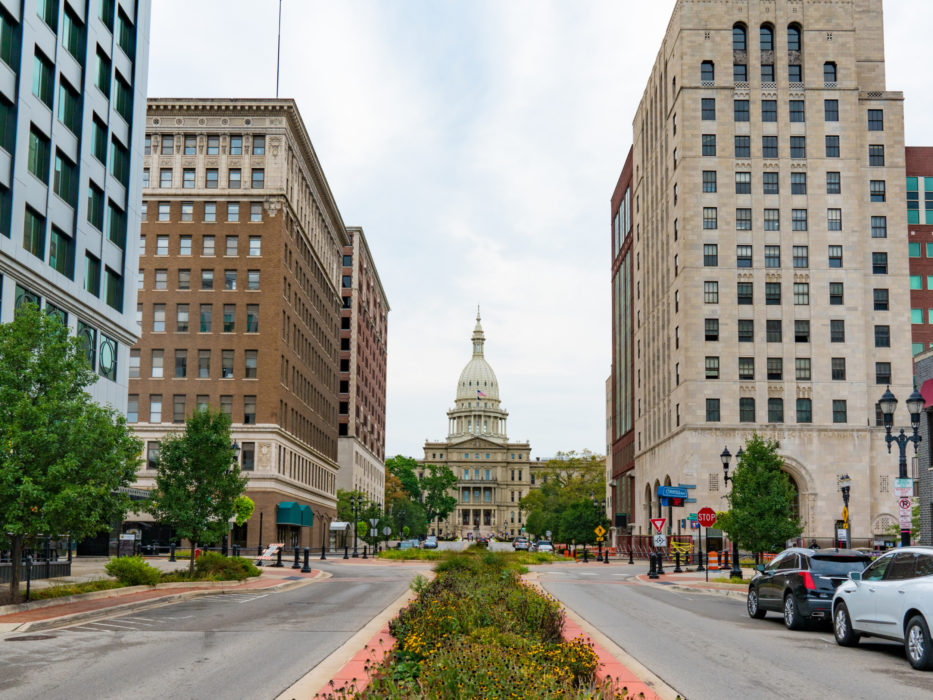
House Appropriations Committee Chair Tom Albert (R-Lowell) is staking his ground on how he wants to spend roughly $5.7 billion in uncommitted federal COVID relief money the state can essentially spend as it wishes.
He rolled out a list of preferences Tuesday that included sinking $1.2 billion into roads ($700 million to pay down bond debt), $250 million for water and sewer upgrades, $150 million into rural broadband, and $595 million into erasing the entirety of the Flint Water crisis settlement.
Albert also wants to sink $350 million into the Rainy Day Fund. He sees putting $50 million into consolidating office space so more employees can work from home in the future and save the state even more money down the road.
There’s food assistance and COVID testing and vaccine distribution that will be covered, too, by this money under this plan.
“These are important steps for Michigan taxpayers and families,” Albert said. “It will save money and improve state services over the long run while making sure our kids aren’t asked to pay our bills down the road.”
The kicker is that Albert wants to limit Gov. Gretchen Whitmer from using the State Administrative Board to move money around as she did in a big way in the fall of 2019 after lawmakers dumped a non-negotiated budget on her desk.
He wants to cap at $200,000 the amount of money the Administrative Board can transfer after about $1 billion in transfers in 2019.
Coincidentally, for the first time in a year, the governor last week had a face-to-face meeting with just her and Michigan’s Republican legislative leaders in the room.
Amazing how quickly a once-in-lifetime influx of cash can bring “frenemies” back together again.
It’s time to get along. The Republicans can’t spend this federal COVID unless Gov. Gretchen Whitmer signs off on it. Likewise, she can’t spend any money unless lawmakers give her something she likes.
A prolonged standoff over the money may send it back to Washington D.C., which neither side wants.
Local governments are getting their own $4.4 billion. Another $3.9 billion must be spent on education. Higher education is getting $1 billion; and child care $1.1 billion.
Michigan government is getting $5.7 billion and there’s no shortage of ideas, except they can’t cut taxes or address pension debt.
It can go to help those most impacted by the COVID pandemic. It can pay essential workers more money. It can go to rebuilding water or sewer pipes.
The governor is crafting her to-do list with the assistance of former House Minority Leader Sam Singh and his team at Public Policy Associates (PPA).
Inevitably, more money is going to go to help the unemployed or the poor pay their rent, their mortgage and their utility bills. Small businesses that were forced to shut down during the pandemic, like restaurants, are going to get a slice.
Singh said he’s pleased to assist the governor and the State Budget Office navigate through it all. His team is digging into the best practices of other states as part of its research. The goal is to manage the money in a way that Michigan gets the best, most effective benefit of this money.
Behind the scenes, legislative leaders grumbled whether this work with PPA and other stakeholders was laying the groundwork for another legislative work-around.
They played that game during the pandemic with Whitmer’s emergency restrictions. They’re not interested in doing that again.
But that’s not the case, said Budget Office spokesperson Kurt Weiss.
“It’s not uncommon to get outside support to develop policy ideas and this was an opportunity to do that without using any state dollars,” Weiss said. “We think that having this input will be beneficial for the Legislature” as everyone dives into the money.
Clearly, working together after so much time of both sides doing their own things isn’t going to be that easy.